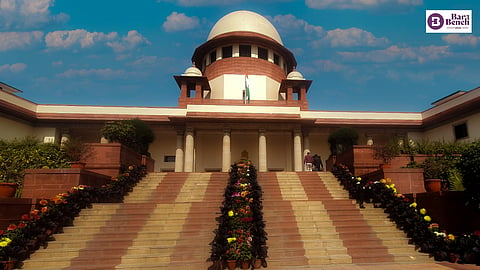
- News
- Columns
- Interviews
- Law Firms
- Apprentice Lawyer
- Legal Jobs
- हिंदी
- ಕನ್ನಡ

The Supreme Court on Thursday stayed the death sentence imposed on a flower-seller convicted for the rape and murder of a minor in 2020 in Tamil Nadu's Pudukkottai [Samivel @ Raja vs State of Tamil Nadu].